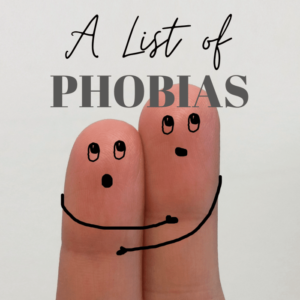Read time 4 minutes
Every day I wake up, take a deep breath, and whisper a simple prayer: Thank you, dear Universe. You’ve held my hand through pain, despair, diagnosis, and unexpected redemption.
This blog is a reminder that healing isn’t always about being disease-free. Sometimes, it’s about learning to walk with the wounds, not just past them.

For years, fear clung to me like a second skin. The word phobia might sound clinical or distant, but when you’re living inside one, it can be suffocating.
Phobias can reshape our behavior, cloud our judgment, and hold our joy hostage. Mine did all of that and more.
Let me start from one haunting evening that changed everything.
When My Normal Became Fragile
It was a beautiful evening….
One of those quiet beach strolls you take when the world feels kind. The sky was streaked with orange, strangers smiled in passing, and I remember thinking, this is peace.
But mid-step, a bolt of pain shot through my leg, traveled to my back, and before I could react, I collapsed on the soft sand, crying out in agony.
That moment marked the beginning of a terrifying chapter. Painkillers became daily staples. I lay bedridden, battling spasms and clutching a hot water bottle like it was life itself.
When the doctors diagnosed me in 2016, I stared blankly as they used terms I’d never heard:
Isaacs’ Syndrome, a rare neuromuscular condition caused by persistent muscle hyperactivity. As if that wasn’t enough, I also tested positive for Lyme disease. It is a bacterial illness transmitted through ticks. And then the diagnoses kept coming, Glaucoma. It is a condition threatening my eyesight, Membranous Glomerulonephritis, a degenerative kidney disease.
The list went on with Irritable Bowel Syndrome (IBS), Diabetes, Frozen Shoulder, Eczema, and Blood Pressure issues.
I wasn’t just falling apart physically and unraveling emotionally.
The barrage of diagnoses plunged me into uncharted territory. I stopped trusting my body. Every twinge of pain ignited panic; every change felt like a fresh betrayal.
I didn’t just suffer from disease—I suffered from the fear of disease. And this fear evolved, multiplied, mutated into full-blown phobias that dictated how I lived each day.
Some of them were classic, recognized medical phobias:
-
Nosophobia: An obsessive fear of falling ill. Even the most innocent health headline would spike my heart rate. I avoided all medical news and stories like they were infectious themselves.
-
Anticipatory Anxiety: A crippling dread about what the future held. I couldn’t see past my illnesses. I stopped imagining better days, convinced they didn’t exist for me.
-
Algophobia: The fear of pain. When pain becomes part of your daily reality, you’d think you’d get used to it. But I didn’t. I feared the pain more than the disease itself.
These phobias-built cages inside my mind, and soon, I stopped recognizing myself.
My Turning Point

I have my mother to thank for pulling me back from the edge. She was my gentle voice of reason—the one who reminded me that fear doesn’t heal, it only paralyzes.
She encouraged me to seek professional help. That decision changed everything.
In therapy, I found space to breathe. I began unpacking the mental weight I’d been dragging for years. We tackled each phobia one by one.
- The most valuable support came from accessing accurate information about my health conditions. I learnt to distinguish facts from common misconceptions
- Focused on my strengths and goals
- I learned resistance techniques. Chose to breathe through panic instead of fleeing from it
- And, I started distracting the monkey mind. The one that jumps to worst-case scenarios when we are vulnerable
- Talking to my peer group helped normalize my experience. These online groups offered coping tips
- Recovery, I found, wasn’t a finish line. It was a set of tiny victories. Taking a walk, feeling less anxious about a doctor’s visit, having less panic attacks and so on.
A Different Touch

Along this healing path, I explored Craniosacral Therapy. It is a gentle hands-on practice that connects deeply with the nervous system.
A practitioner helped release trauma buried in my tissues, my fascia. From the very start of the therapy, I felt my muscles sighing in relief. With each session, my body whispered: Thank you for listening.
I also welcomed spirituality into my life, not as dogma, but as comfort. I read, I meditated, and it may sound stupid, but I actually spoke to the Universe like it was an old friend.
An Important Practice is Holding onto Hope

Medications and supportive doctors played their part. But what truly changed the course for me was my mindset. I didn’t “beat” Isaacs’ Syndrome. I still live with many of my conditions. But I stopped letting them define me.
Simultaneously, I started engaging in safety behaviors, and measures to minimize risks. They were all about not feeding my phobias.
I began investing in my health from a place of empowerment, not desperation. I reclaimed small things like gardening, and writing. Each hobby was a declaration: I am still me.
I reshaped my core beliefs around illness. No longer viewing my body as broken, but as resilient, and a vessel that fights battles most people never see.
We Are Not Alone

I see you: to anyone reading this who lives with phobias, or chronic illnesses, or both.
I understand the sleepless nights, the dread in your chest, the invisible burdens you carry: I have experienced it all. But I also know that healing starts with belief. Belief that you deserve peace. That help is out there. That you aren’t weak because you’re afraid, you’re human.
We may never be phobia-free, but we can strive to be phobia-resilient. We can choose kindness for ourselves, especially on the days that feel impossible.
DISCLAIMER
This article reflects personal experiences and does not serve as medical advice. Always consult qualified professionals for diagnosis or treatment.


